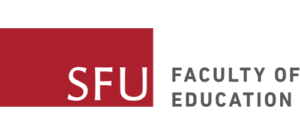All teachers and parents would agree that imagination is important for education.
But are we really talking about the same thing when we use the term “imagination”?
Since imagination is a notoriously multifaceted concept, it is possible to focus on any aspect of it to suit one’s educational outlook. Therefore, more imagination in education could mean more technologies in the classroom as well as less; more hands-on activities as well as more virtual activities; more collaboration among students as well as more individual work; more play as well as more academic rigor. (By the way, none of these needs to be an either/or question.) This makes me wonder whether we share anything beyond a general image of imagination – imagination being a convenient catchword to express our general discontent about our schools.
In order to have a coherent idea of Imaginative Education and the role of imagination in education in general, we need to engage in a philosophical dialogue on what imagination is and why it is important for education, and examine our views on what curriculums, activities, and materials are more likely to engage and nurture students’ imaginations. I hope you’ll join me in this important dialogue. Use the contact form on this page to get started.
Moderator: Dr. Keiichi Takaya obtained his Ph.D. from Simon Fraser University in 2004. His research interests are in philosophy and history of education, such as the history of educational practices that highlight the role of imagination, particularly in the progressive era, and the Pestalozzian movement and the development of normal schools in North America. He teaches English and Education at Kokugakuin University in Tokyo, Japan.
For your consideration:
Imagination is a powerful tool for thinking, feeling, and learning, but it is a tool that can be used either for the good or for the bad. I sometimes wonder whether we, as researchers/teachers, think only or primarily of the positive aspects and uses of imagination, without much regard to the negative ones.
Do we need to turn our students’ eyes to negative, or even evil, aspects and uses of imagination? And if so, how?
Archives:
(January 2020) Is the study of literature a particularly good way to cultivate our imagination?
(June 2019) How are imagination and creativity distinct?
(Spring 2019) How does Maxine Greene’s work contribute to your understanding of imagination?
(Fall 2018) From a philosophical perspective, what is the role of imagination in learning?
